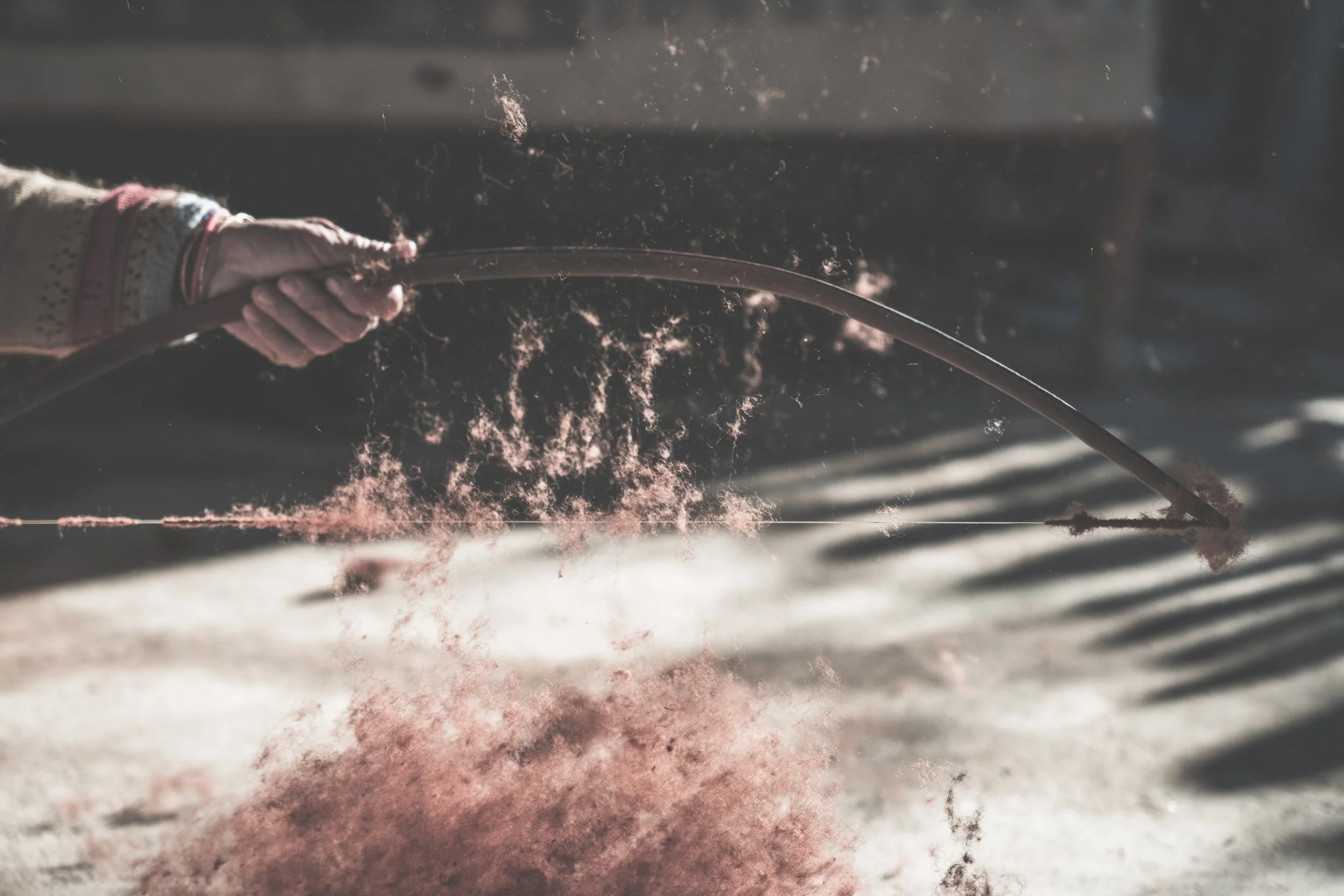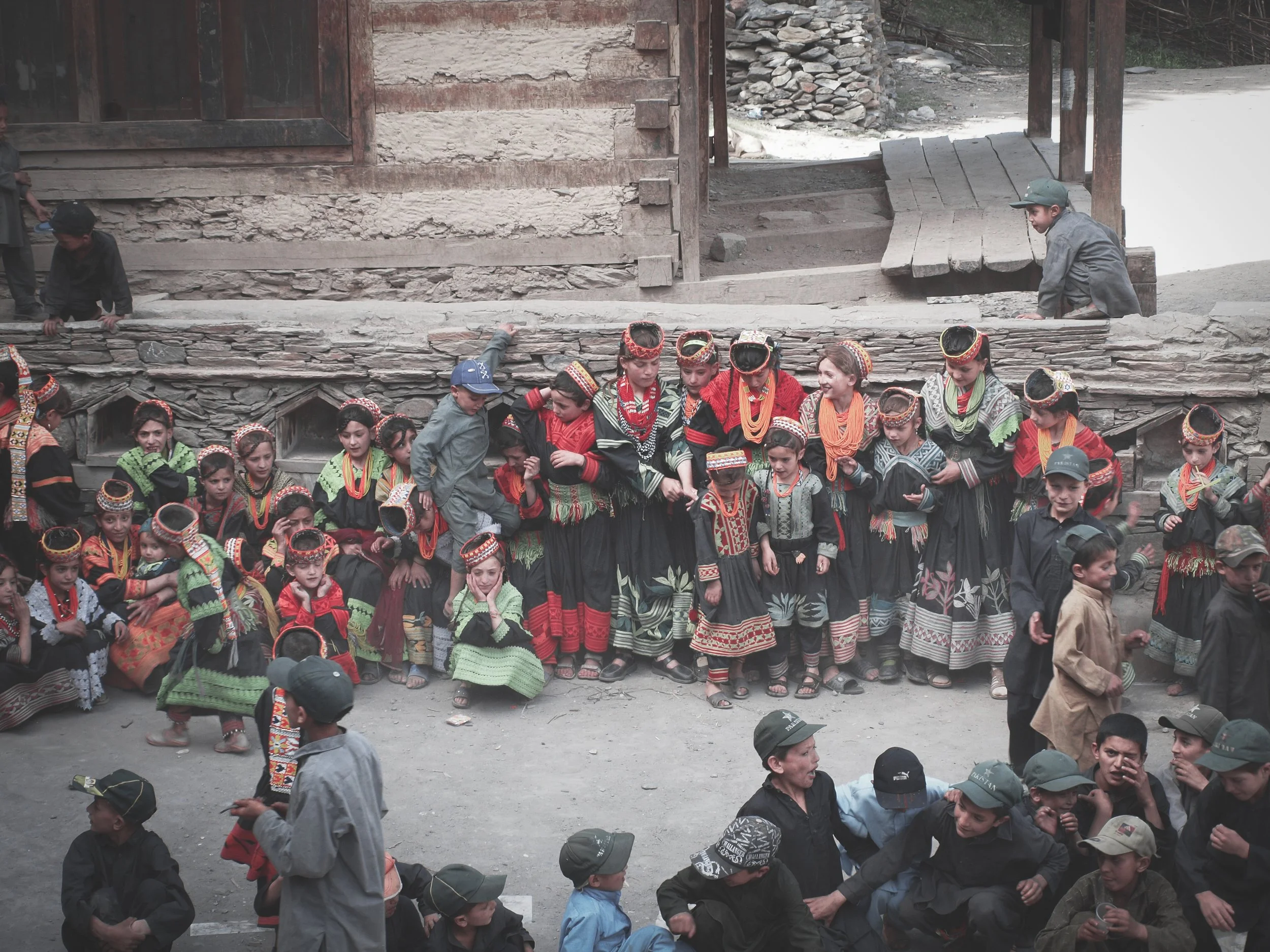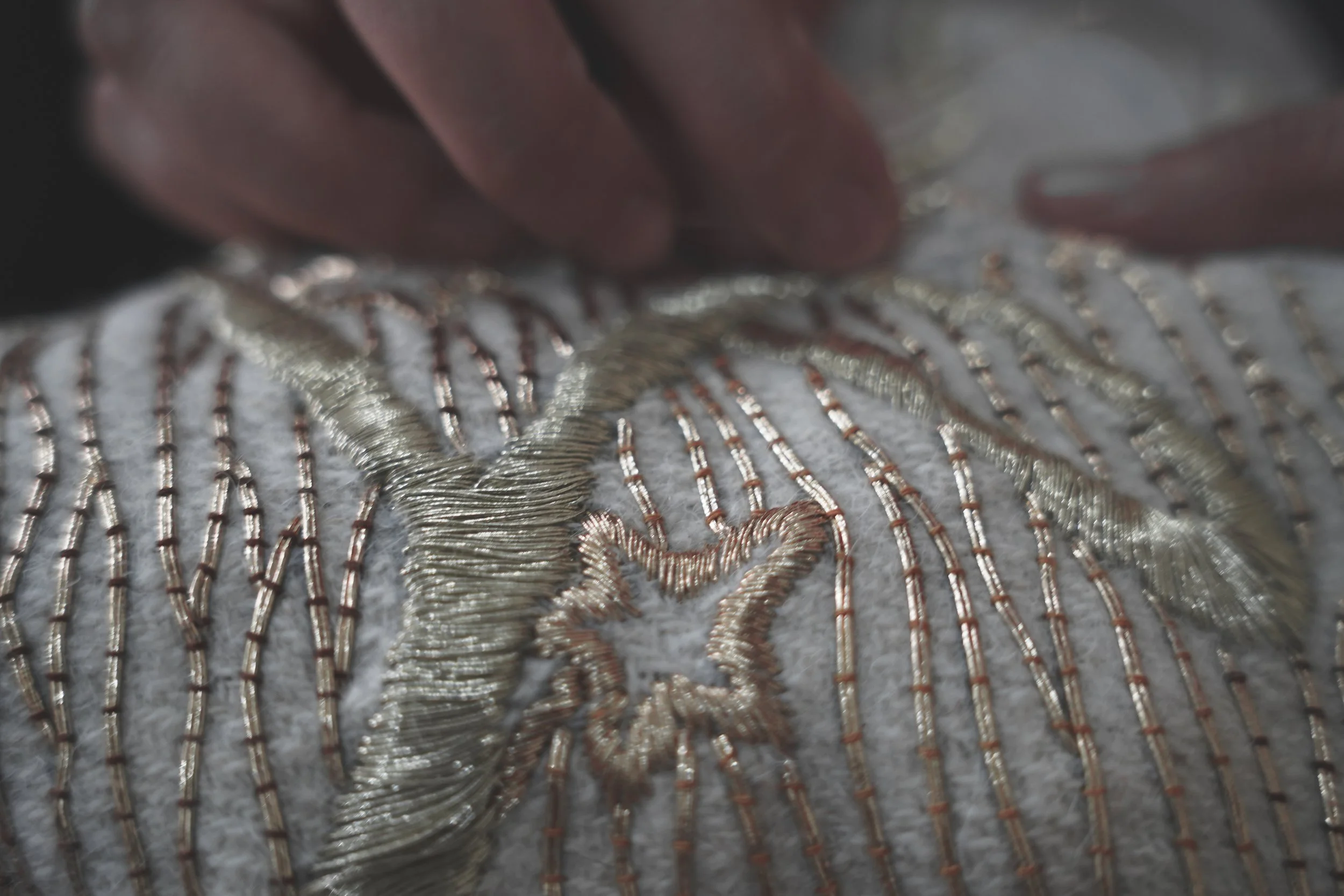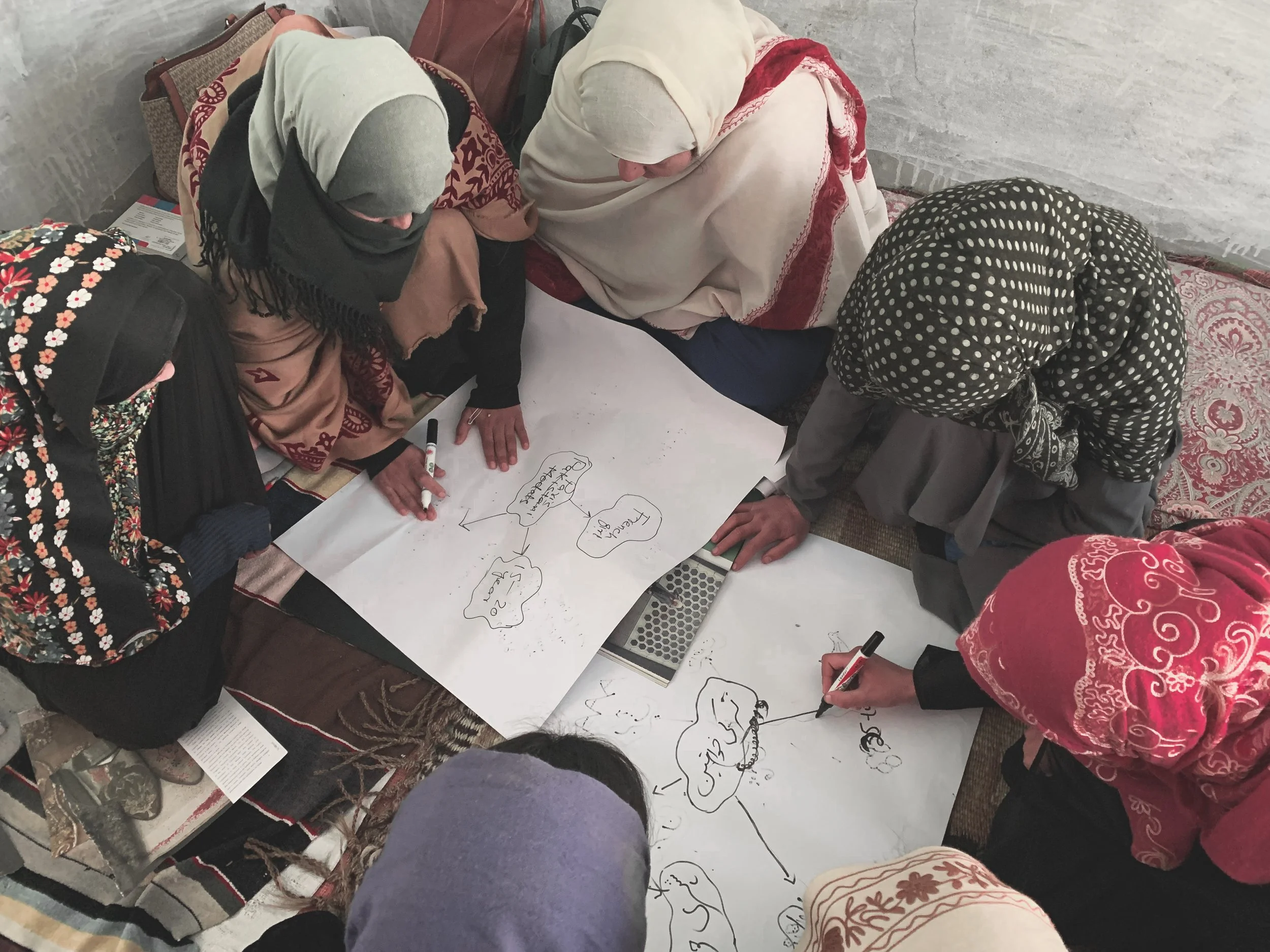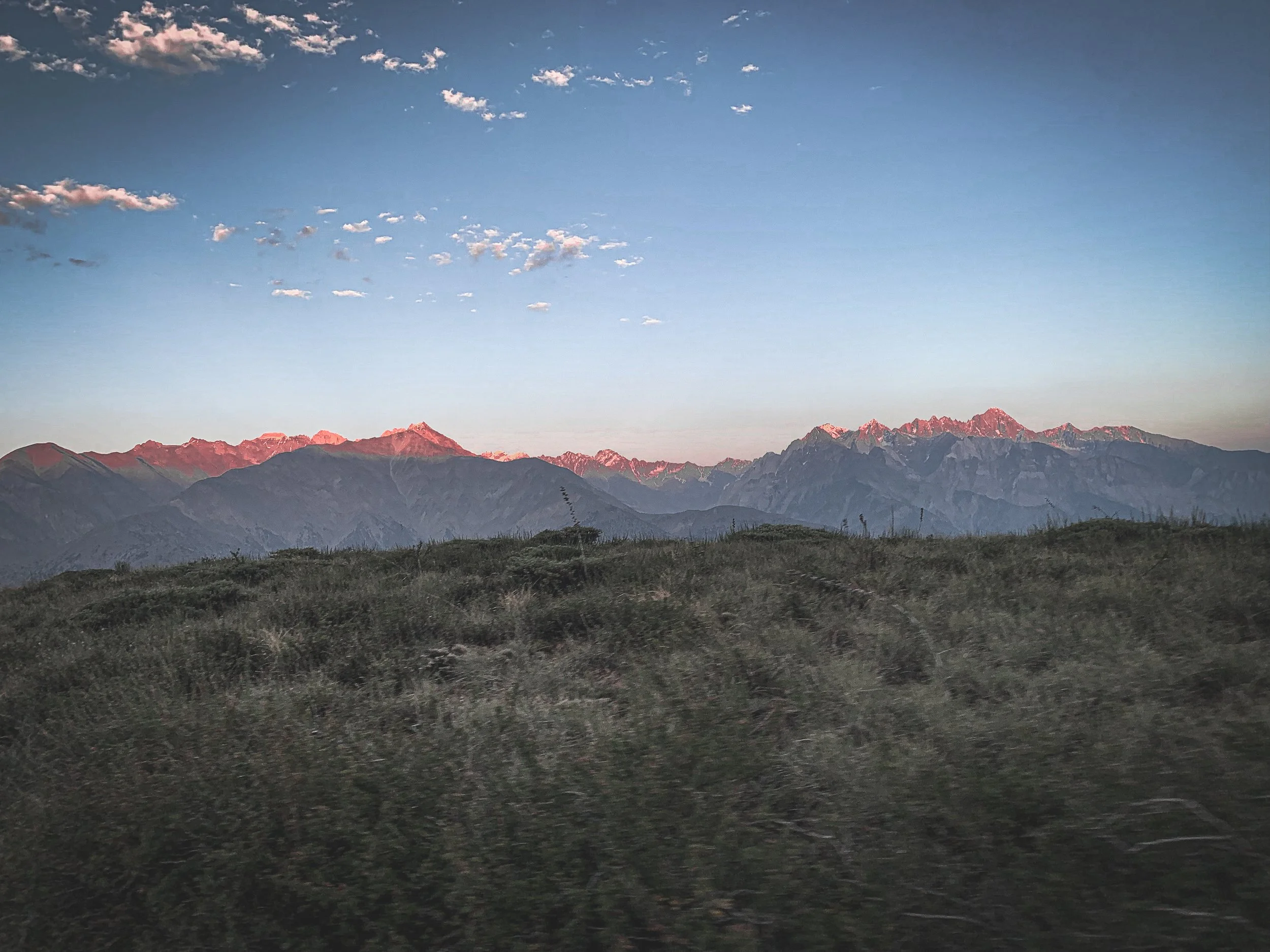
Lálgar builds a living bridge between heritage and a just, sustainable future. Our programs span Research, Education, Applied and Performing Arts, creating dignified work, climate-wise practice, and language-forward storytelling.
We document endangered practices and the ecologies that sustain them - so communities can shape how their knowledge is held and shared.
Research & Knowledge
What we do
Ethnography & Oral Histories: Field interviews, archives, and consent-based storytelling.
Materials & Methods: Open toolkits on fibre preparation, weaving, finishing, repair, and care.
Cultural Rights: Free, Prior, and Informed Consent (FPIC), community review, and benefit-sharing.
Publications: Field notes, essays, and guides in Khowar/Urdu/English.
Outcomes
A community-owned record of technique and memory, practical learning resources, and research that informs policy, education, and design.
Field School of Wool (Education)
A modular learning program—co-taught by artisans, ecologists, and designers—linking pasture to product, and tradition to contemporary need.
Core modules
Pasture & Ecology: Wool as a climate story; land stewardship and water-wise practice.
Fibre Science to Fabric: Sorting, scouring, spinning, weaving, felting, finishing.
Design for Repair & Longevity: Mending, modularity, and end-of-life planning.
Enterprise & Ethics: Pricing, quality standards, contracts, and safe work.
Language & Culture: Khowar/Urdu/English terms, craft lexicons, and oral forms.
For whom
Women and youth artisans, community trainers, and early-career designers.
Outcomes
Certification, portfolio pieces, and pathways into Maker Labs and paid studio work
Performing Arts
Music, Dance & Oral Traditions of Chitral
Chitral’s cosmopolitan, ethnically diverse valley carries a wide spectrum of performing arts—winter-night mehfil gatherings, folk music and lore, Mehfil-e-Mushaira (poetry circles), and the folk dance Phonik—where language, memory, and rhythm meet.
What we do
We document and safeguard native languages and vocabularies, instruments and techniques, and indigenous tunes—building an open, bilingual archive of recordings, glossaries, and field notes. With consent at the center, we pair visiting artists with local practitioners for intimate showings and studio/site sessions.
Youth Program
A dedicated pathway for young people to understand endangered performing arts—learn basics of music, dance, and oral tradition; practise instrument care; and record stories. Mentorship and counselling help participants grow confidence to keep these arts as a hobby or pursue them as a career. Open to all genders.
Outcomes
Small labs and showings, performance films, low-bandwidth audio notes, and teaching kits that return knowledge to schools and community spaces.
Where learning turns into dignified work. The Atelier commissions and produces limited-edition pieces that honour provenance and pay fairly.
Applied Arts & Enterprise
How it works
Design & Sampling: Co-created with artisans; transparent material sheets.
Quality & Fair Pay: Living-wage benchmarks, clear timelines, written agreements.
Market Access: Small-batch releases, museum/shop collaborations, export readiness.
Circular Practice: Minimal-waste cutting, repair guarantees, material traceability.
Outcomes
Income for makers, high-integrity products for partners, and a model for climate-conscious craft economies.
Maker Labs (Mobile Training Camps)
Hands-on, village-based labs that bring tools, trainers, and small-batch production to the doorstep—reducing travel barriers and widening access.
What happens in a Lab
Skill intensives (loom setup, finishing, quality control).
Safe-work setups and tool maintenance.
Small-batch pilots linked to real orders.
Micro–grants for equipment (subject to funding).
Outcomes
Higher, steadier incomes; improved quality and safety; local trainer capacity.
Community Workshops & Public Programs
Open sessions that keep craft social, intergenerational, and joyful.
Formats
Mending clinics and care circles
Youth clubs and material play labs
Language & storytelling sessions
Exhibitions, talks, and film nights
Outcomes
Stronger local networks, pride in heritage, and public literacy in sustainable making.
How our programs connect
Research informs the Field School and the Performing Arts Lab. Graduates build skills in Maker Labs, while the Atelier turns practice into paid work and commissions. Mehfils, showings, and Community Programs keep knowledge public and alive through recordings, workshops, and open toolkits. At every step, we centre linguistic diversity and climate dignity.
Questions or partnership ideas? lalgarfoundation@gmail.com


